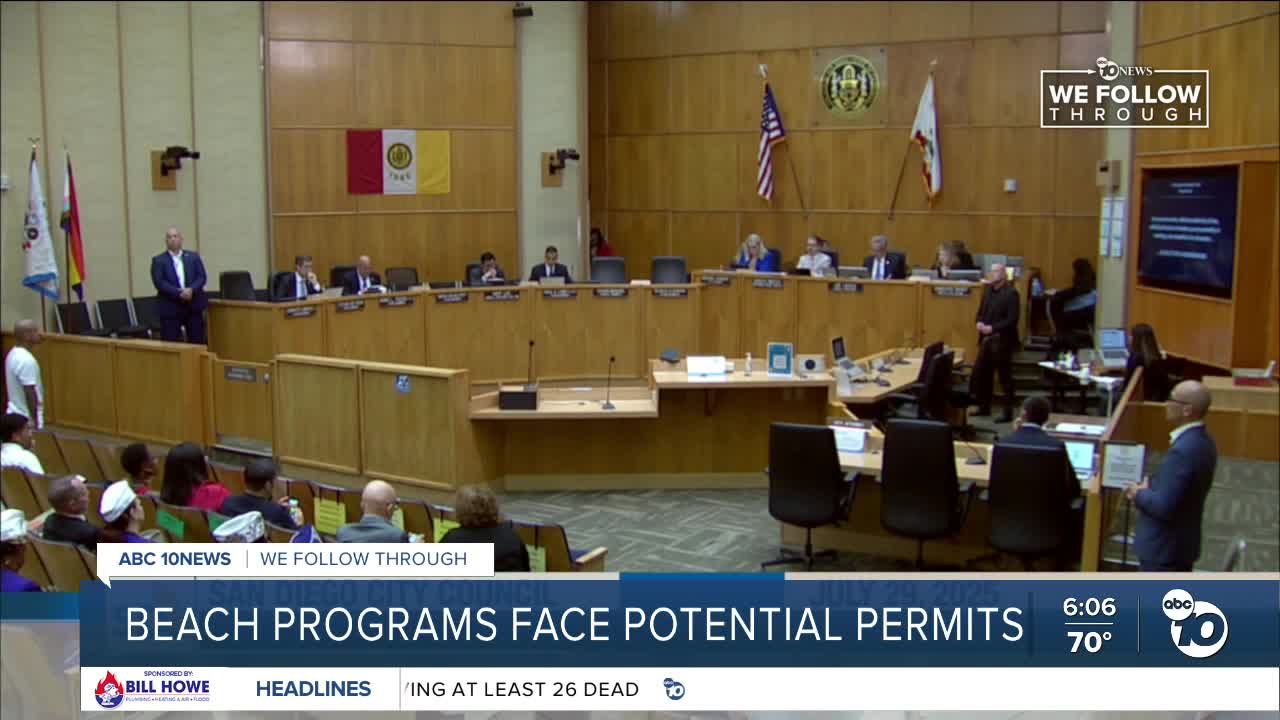SAN DIEGO (KGTV) — A proposal requiring nonprofits to purchase permits for beach activities in San Diego could significantly impact organizations working to diversify coastal access and reduce drowning rates among minority children.
The Parks and Recreation Department submitted a proposal on July 29 that would require nonprofits to purchase permits for water-based activities on San Diego beaches. These permits would include time restrictions, limiting activities to weekdays between 9 a.m. and 2 p.m.
"It feels limiting that we have to go through a permit process. We have to pay the fees that a lot of small grassroots organizations cannot afford," said Risa Bell, founder and CEO of Paddle for Peace.
Bell's nonprofit, started in 2020, aims to diversify coastal access by teaching water-based activities like snorkeling, surfing, and marine education to underrepresented youth.
"Our goal is also to reduce the drowning rates in Black and brown children, and we do that through ocean safety and also just protecting the coast, and we do that through marine education," Bell said.
Currently, Paddle for Peace operates under California law AB2939, which allows nonprofits to use public parks and beaches without special permission. The proposed resolution threatens to change that arrangement.
The timing restrictions pose a particular challenge for the organization, as their programs primarily operate on weekends.
"The permit is limiting because it removes weekends. Our programs are run on weekends. They're run by the volunteers, and during the week, the kids are at school, the parents are working, the volunteers are working," Bell said.
According to officials, the proposal was brought to the board after lifeguards claimed some nonprofit groups weren't following water safety standards – an assertion Bell disagrees with.
Paddle for Peace plans to meet with the Mayor's Office to seek a compromise solution.
"This is how we create, you know, safer beaches and help reduce drowning rates and the burdens on the lifeguards, right, because there is no ocean safety without access," Bell said.
This story was reported on-air by a journalist and has been converted to this platform with the assistance of AI. Our editorial team verifies all reporting on all platforms for fairness and accuracy.




